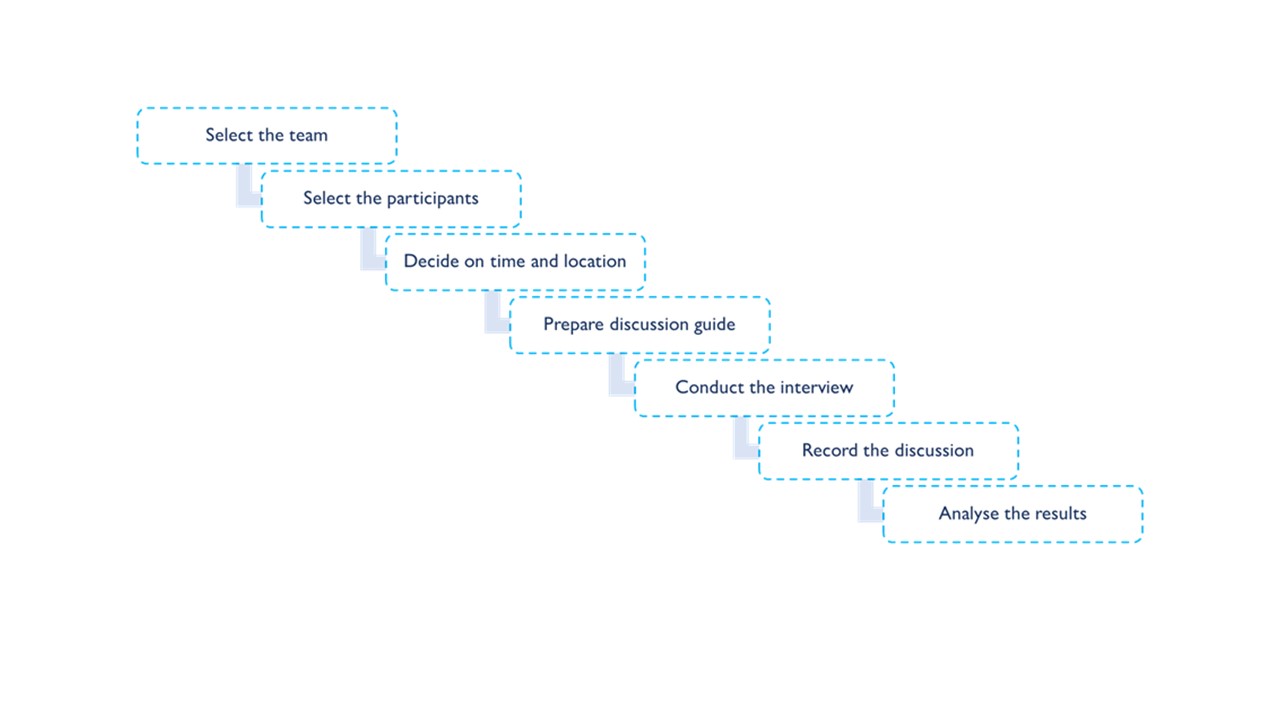

Focus Group Discussions (FGDs)
January 05, 2022, Evaluation Observatory

Consider, that for a research project, you want to understand the perceptions, insights, attitudes, experiences, or beliefs of a group of people as a part of your research. While quantitative methods can provide numerical data-points; onewill needs to look beyond numbers – i.e. use qualitative methods to capture subjective insights.
While In-depth interviews and Observational studies can be used; however, since the research project requires one to understand group level observations – that can be arrived at in an open atmosphere, where individuals can freely discuss their opinions with one another – an FGD would be appropriate.
What is a Focus Group Discussion?
Focus group discussions (FGDs) are discussions facilitated by a moderator, usually based on a short list of guiding questions, which are then used to probe for in-depth information. A typical FGD comprises of a small group of people (generally 6 to 12 people) who have specialized knowledge or who may be interested in a particular topic (INTRAC, 2017). The facilitator guides the group, and creates an environment that encourages participants to share their perceptions on a given topic (CDC, 2018). FGDs can be used at multiple stages in the program stage, helping shape theprogram design in the beginning, understanding the progress of the program in the middle, to aiding program evaluation. A researcher ideally carries out several FGDs on a particular topic determined by availability of time and resources, until a saturation point is reached – i.e. when no new information is generated, and findings become repetitive (INTRAC, 2017) to arrive at conclusive findings.
Steps in conducting Focus Group Discussions,
Source: USAID, 2011
Do’s and Don'ts of Focus Group Discussions
Image Source: INTRAC, 2017
List of recommended resources:
For a broad overview
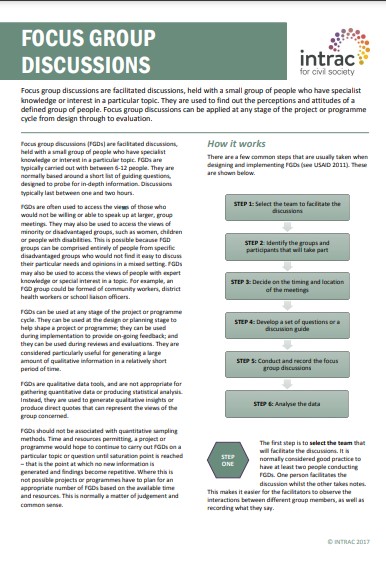
-
Developed by INTRAC, this document provides an overview of the method and discusses steps involved in conducting FGDs. It also highlights the strengths and weaknesses of FGDs and provides a set of dos and don'ts for practitioners.
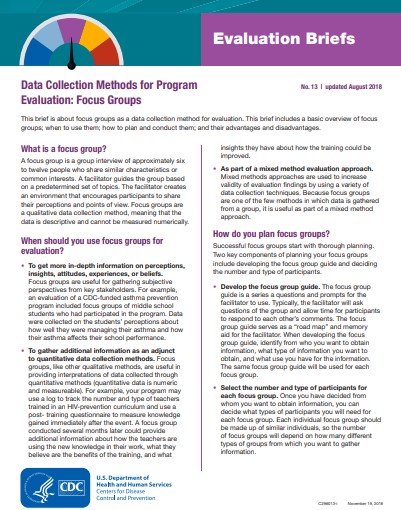
-
Developed by Centre for Disease Control, this brief discusses focus groups as a data collection method for evaluation and includes a basic overview of focus groups, when to use them, how to plan and conduct them, and their advantages and disadvantages.
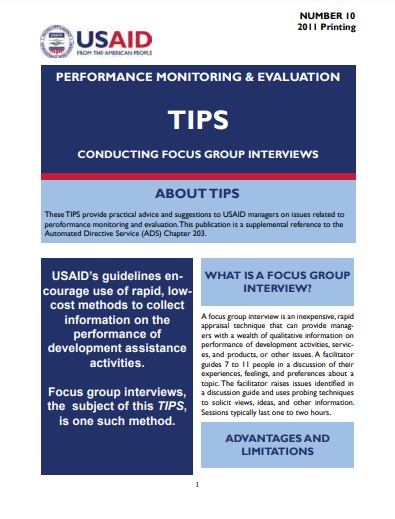
-
Developed by USAID, this document defines FGD and guides practitioners on their use by discussing the steps involved in conducting FGDs.
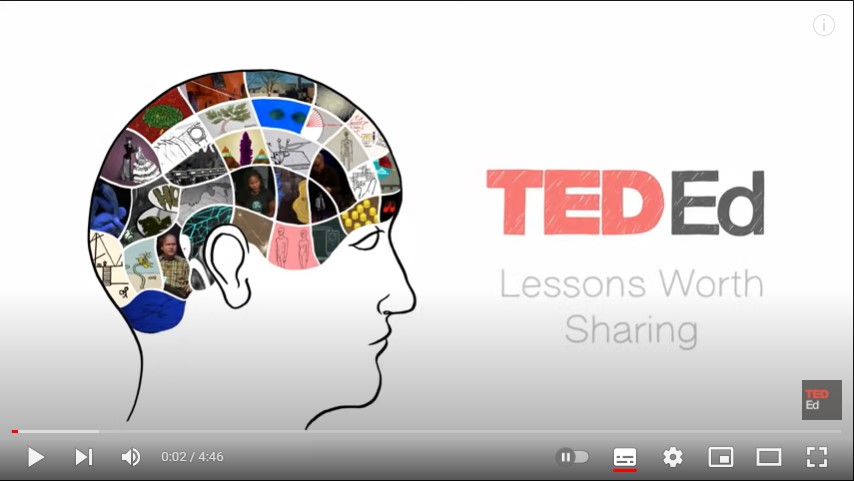
-
Published by TED-ed, this video discusses focus group discussions' rationale, process, and limitations.
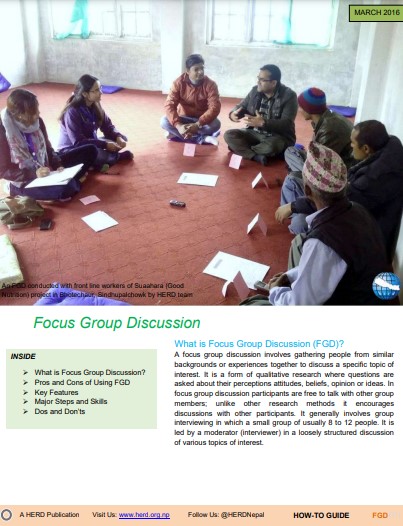
-
Published by HERD, this document highlights key features, pros & cons, steps and dos & don'ts of Focus Group Discussions.
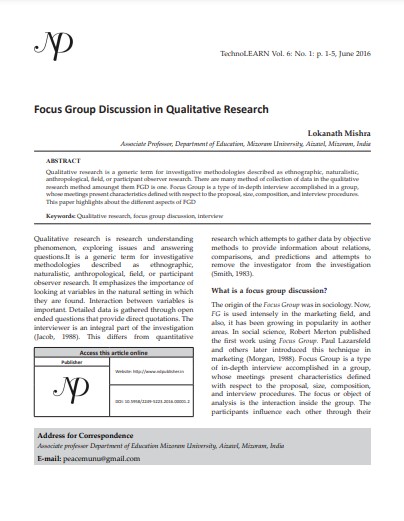
-
Written by Lokanath Mishra, this paper highlights the different aspects of FGD like its rationale, process, advantages and disadvantages etc.
For in depth understanding
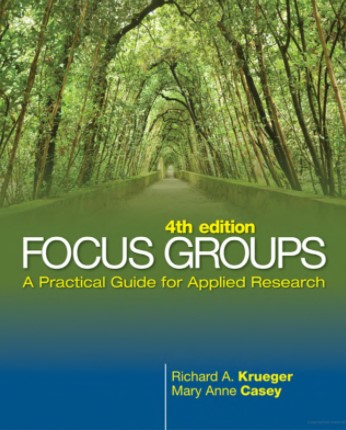
-
Written by Richard Krueger and Mary Anne Casey, this book is rich in advice based on years of practical experience in conducting focus groups, and guides practitioners in conducting focus groups - outlining the processeand providing examples.
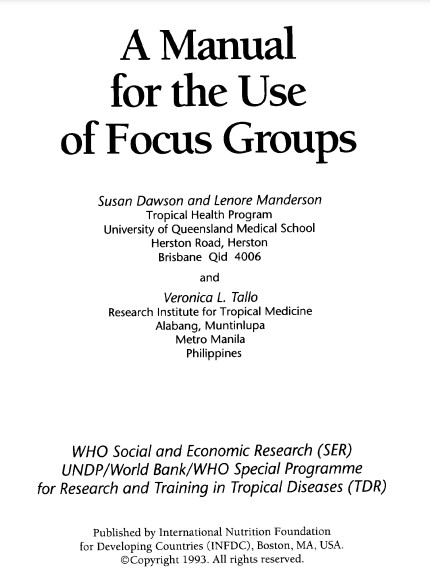
-
Published by WHO, this manual has a detailed discussion of the FGD process and the various skills needed by practitioners to conduct FGDs effectively.
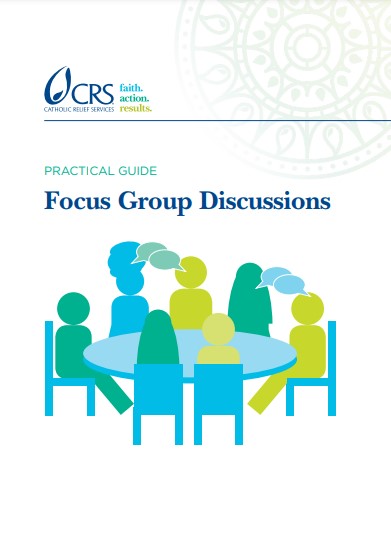
-
Developed by CRS, this document is a step-by-step guide for practitioners on the basics of FGDs It also discusses its design, process, and how to code and analyse data in detail.
Case Study
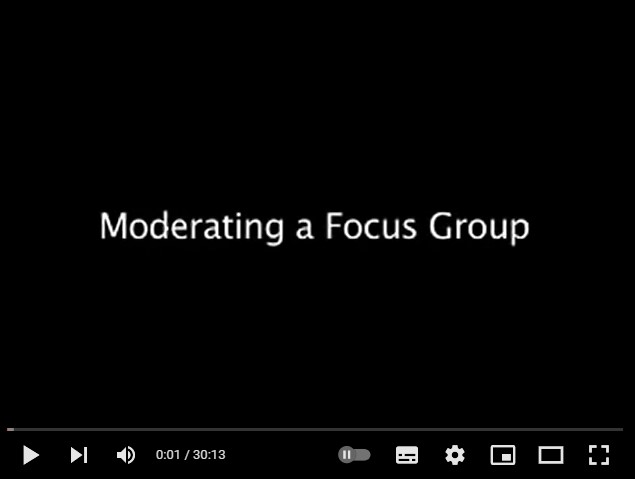
-
Published by Richard Krueger of the University of Minnesota, this video demonstrates how to conduct and moderate focus group discussions.
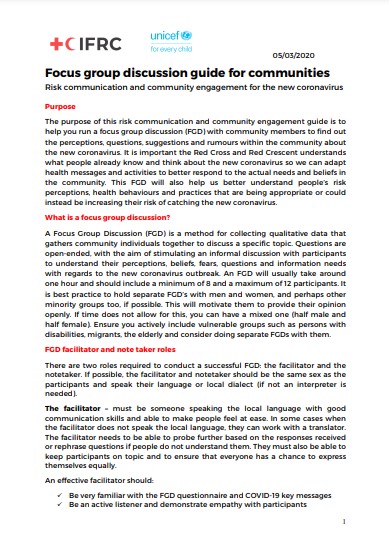
-
Health: Focus Group Discussions: Risk communication and community engagement for the new coronavirus
Developed by UNICEF, this document guides practitioners to run a focus group discussion (FGD) with community members to find out the community's perceptions, questions, suggestions, and rumours about coronavirus.
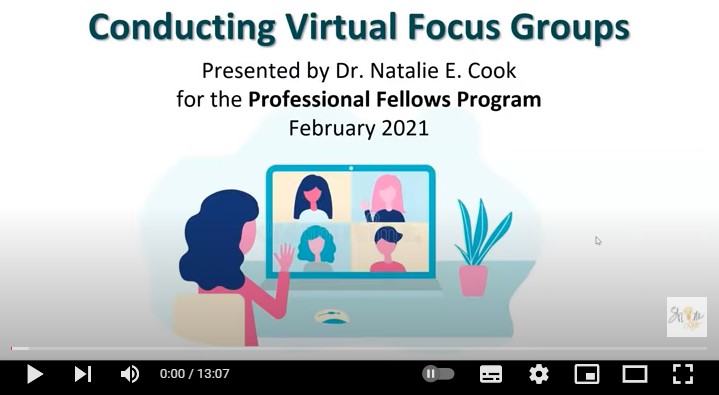
-
Presented by Dr Natalie E. Cook, this video guides practitioners on conducting virtual focus groups and highlights aspects like creating question guide and interview protocol. It also lists the best practices to conduct online Focus Group Discussions.
Toolkits
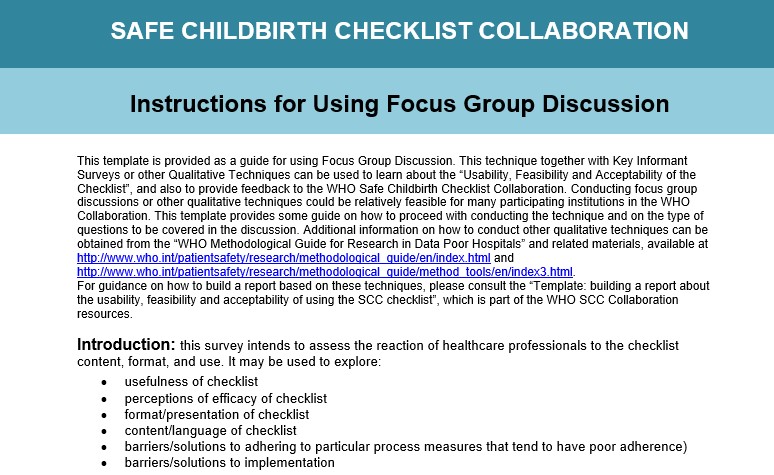
-
Developed WHO, this template acts as a sample interview guide to conduct Focus Group Discussions with healthcare professionals on the experience of safe child deliveries post the introduction of a checklist
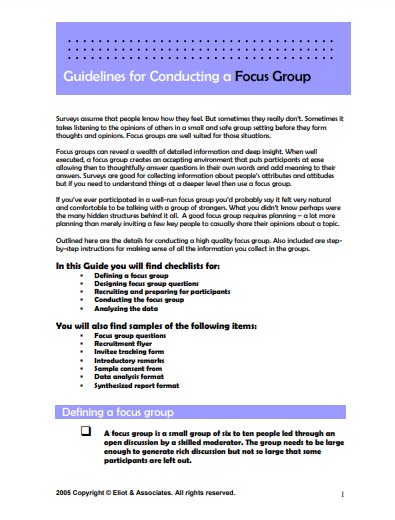
-
Developed by Eliot & Associates, this document provides guidelines for conducting FGDs and a template for analysing data.
Further Reading

-
Published by East Tennessee State University, this blog post gives overview of Computer-assisted qualitative data analysis software (CAQDAS) tools which are used to help analyse and gain insights into data prior to interpretation. It also helps researchers manage data; create transcripts, create memos, assign codes, assemble codes into themes, generate word frequency searches, and create mind maps.
References:
Focus Group Discussions. (n.d.). INTRAC. Retrieved January 10, 2022, from https://www.intrac.org/wpcms/wp-content/uploads/2017/01/Focus-group-discussions.pdf
Data Collection Methods for Program Evaluation: Focus Groups. (2018, August). CDC. Retrieved January 10, 2022, from https://www.cdc.gov/healthyyouth/evaluation/pdf/brief13.pdf
TIPS: Conducting Focus Group Interviews. (2011). USAID. Retrieved January 10, 2022, from https://pdf.usaid.gov/pdf_docs/pnadw110.pdf
You may also like

Big Data: An Introduction and Application in the Social Sector
August 30, 2021
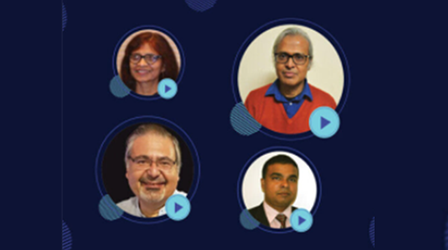
Building an Evaluation Ecosystem: Perspectives from Evaluation Associations - Key Takeaways from the Webinars
August 30, 2021

GENSA Celebrates One Year, and Keynote by Katherine Hay
August 30, 2021


